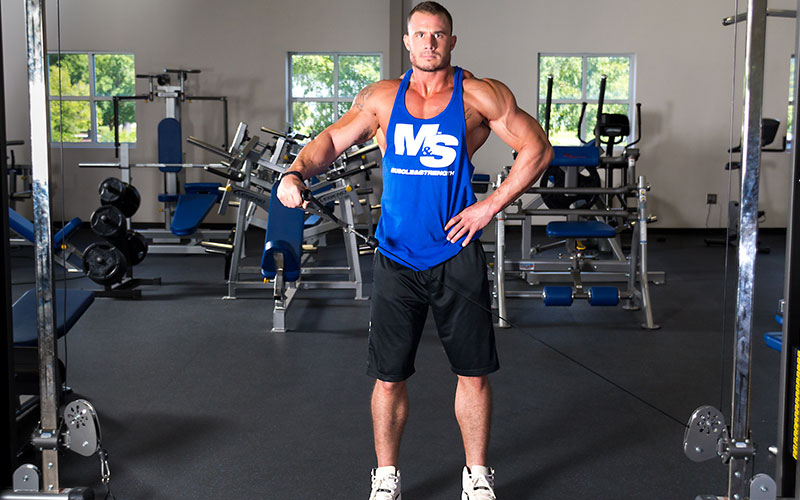01dragonslayer
Ripped
- Jacked Cash
- 537,260
3 Surprising Reasons Why You Need to Rediscover Slow Growth
written by JAMES CLEARSELF-IMPROVEMENT STRENGTH TRAINING
We all have goals that we’d like to reach.
And, if we had the choice, we would prefer to reach them sooner rather than later.
There’s nothing wrong with achieving a goal quickly, but the insatiable desire to enjoy results now — with little regard for the process — is hurting our health, our happiness, and our lives in general.
The media and society are continuously glorifying the end result (earn more money, find love, win the Super Bowl) and it's becoming dangerously easy to think that the goal is what validates us and not the struggle of the process.
If you want to fulfill your potential and become something better, then you need to rediscover the power of slow growth.
Here's why…
A Surprising Lesson From the Life of Young Chinese Weightlifters
Yesterday, I read an interesting article about the disciplined approach that China takes when cultivating young Olympic Weightlifters. (If you’re unaware, China is overflowing with depth in the sport of weightlifting.)If you’re not a weightlifter, stick with me here, because this is an important lesson for you too.
Here’s what the process looks like for becoming an Olympic weightlifter in China…
Age 6+ — playful gymnastics and bodyweight exercises to train their coordination and help them understand their bodies better. This is important to ensure that future athletes enjoy their training and consider it as an activity rather than training. Gradually, they shift focus to technique drills with a stick.
Ages 8 to 10 — mostly the children are still playing as they move, but 10% to 30% of the time is spent focusing on weightlifting movements like pulls and squats. After 18 months of this, technique has been pretty solidly ingrained into these kids and they start to toy around with the bar.
Ages 10 to 14 — from here onwards, the training time increases and becomes more serious. They start to train with a massive array of exercises from snatch and clean and jerk to pulls and overhead squats to duck walks and frog jumps and tons of stretching.
Age 14+ — now athletes begin working on their specific problems and work to develop the right balance of flexibility, power, strength, speed and technique. At the beginning of this phase, the athlete would have had about 5 to 7 years of training, including at least 3 years under the barbell. The next 4 years will be spent working towards securing a spot on the Chinese National Team and eventually competing in the Olympics.
—Kirksman, original post
Regardless of how you feel about the Chinese society or process, there are some important lessons here about the power of slow growth.
1. Slow Growth Teaches You to Believe in Yourself
Of all the skills that could help you achieve your goals, I would argue that a belief in yourself is the greatest one.And I only know of one way to develop a belief in yourself: prove your abilities over and over with small wins.
Do you think the Chinese weightlifters believe in themselves? Of course they do! By the time they are 12–years–old, they have put in more repetitions than most Americans will put in during their entire lifetime.
And most importantly, they don't begin focusing on performance goals until they have spent years becoming comfortable with their bodies and proving their identity to themselves.
There's no secret formula here. If you want to achieve something you need to believe in yourself. Slow growth allows you to spend time developing the identity of a winner first. You can move on to performance later.
2. Slow Growth Removes Pressure and Allows for Passion
In the beginning, the goal of the Chinese is to let the young weightlifters enjoy the process of moving and becoming athletic.When we work hard on something we believe in, it's called passion. When we work hard on something we don't believe in, it's called stress.
—Simon Sinek
Think about how different this is than the typical process. When was the last time you took 3 years enjoying a process before focusing on the goal you want to achieve?
Most of time we set our sights on a goal (lose 30 pounds, make more money, etc.) and instead of enjoying the process of developing new skills, we decide that we are a failure because we haven't achieved the end result yet.
What would it feel like if we let ourselves enjoy the process of success as much as the product?
If you think about some of the most enjoyable activities in your life, how did they start? It's unlikely that you fell in love with something if you started by immediately pursuing a goal. Most of the things we love started with exploration and a slowly growing curiosity that evolved into a passion over time.
Forget about performance for now. Allow yourself to enjoy the process of becoming something new and better. Give yourself permission to enjoy the journey to greatness.
3. Slow Growth Teaches You How Change Actually Happens
It's so easy to overestimate the importance of one defining moment and underestimate the value of making better decisions on a daily basis.Almost every habit that we have — good or bad — is the result of many small decisions over time. And if this is true, if the problems you’re facing now are the result of thousands of small decisions made over the course of years, then wouldn’t it make sense that path to success, joy, fulfillment, meaning, happiness, and vitality would also be through thousands of daily decisions?
And yet, how easily we forget this when we want to make a change.
When we become obsessed with achieving a result quickly, the only thing we think about is how to get to our goal, but the value of slow growth is that it allows you to realize that your process for achieving goals is just as important as whether or not you achieve them at all.
In fact, I'd say that living a healthy life is more about how you approach your goals than whether or not you achieve them.
For example, healthy leadership isn’t defined by winning an election or being named captain or being selected for a promotion. Healthy leadership is having your teammate's back every day. It’s being an advocate for your employees when nobody else will. It’s asking the first question, taking the extra minute, and sacrificing for something bigger than yourself. It’s a thousand small decisions every day.
It's About the Process, Not the Product
The desire to achieve results quickly fools you into thinking that the result is prize.Slow growth teaches you the truth…
That becoming the type of person you want to become — someone who lives by a stronger standard, someone who believes in themselves, someone who can be counted on by the people that matter to them — is about the daily process you follow and not the ultimate product you achieve.
Let’s spend less time putting people who achieved the numbers and results on a pedestal — the athletes, the political leaders, the blockbuster entrepreneurs — and more time learning from the type of people who live their daily lives by a standard that we want to replicate.
It doesn't matter what you win, it's how you win it.
P.S. If you want more practical ideas for how to build new habits (and break bad ones), check out my book Atomic Habits, which will show you how small changes in habits can lead to remarkable results.







